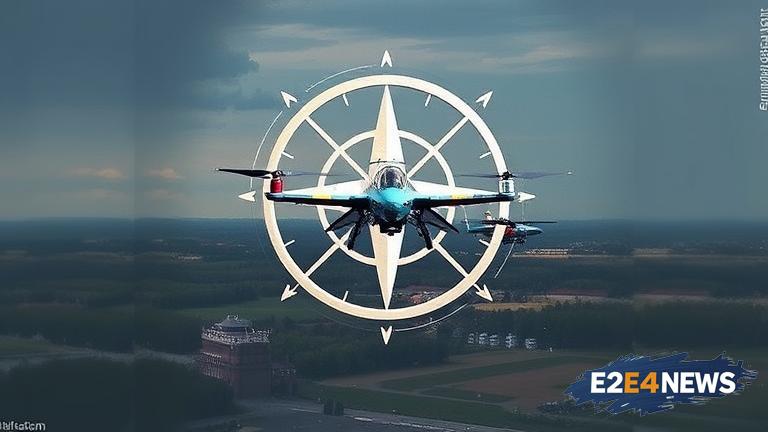The recent surge in drone incursions in the Baltic region has prompted Lithuania to urge NATO to take immediate action to fix the air defence gap. The country’s defence minister has expressed concerns over the lack of adequate air defence systems, which could leave the region vulnerable to potential attacks. The issue has been exacerbated by the increased presence of drones in the area, with several incidents reported in recent months. Lithuania has been at the forefront of efforts to strengthen regional security, and its calls for NATO to address the air defence gap have been supported by other Baltic states. The region’s unique geography, with its proximity to Russia, makes it a critical area for NATO’s defence strategy. The alliance has been working to enhance its military presence in the region, but the air defence gap remains a pressing concern. Lithuania’s defence minister has emphasized the need for a comprehensive approach to addressing the issue, including the deployment of additional air defence systems and the enhancement of regional cooperation. The country has also been investing in its own air defence capabilities, including the acquisition of new missile systems. However, the defence minister has stressed that a collective effort is required to ensure the region’s security. The Baltic states have been working closely with NATO to develop a regional air defence strategy, which would include the deployment of air defence systems and the enhancement of early warning systems. The strategy would also involve increased cooperation between the Baltic states and other NATO member countries. The air defence gap in the Baltic region has been a longstanding concern, with the region’s unique geography making it challenging to deploy effective air defence systems. However, the recent surge in drone incursions has added a new layer of complexity to the issue. The use of drones has become increasingly prevalent in modern warfare, and the Baltic region is no exception. The drones have been used for reconnaissance and surveillance purposes, and their presence has raised concerns over the potential for more malicious activities. The Lithuanian defence minister has warned that the air defence gap could be exploited by potential aggressors, and has called for swift action to address the issue. The country’s concerns have been echoed by other Baltic states, which have also expressed concerns over the air defence gap. The region’s security is critical to NATO’s overall defence strategy, and the alliance has been working to enhance its military presence in the area. The air defence gap is just one aspect of the region’s security concerns, with other issues including the presence of Russian military forces in the area and the potential for cyber attacks. The Baltic states have been working to enhance their cyber security capabilities, and have also been investing in their military modernization efforts. The region’s security concerns are not limited to the air defence gap, but the issue is a critical one that requires immediate attention. The Lithuanian defence minister has emphasized the need for a collective effort to address the issue, and has called for NATO to take swift action to fix the air defence gap. The country’s concerns have been supported by other Baltic states, and the issue is likely to be a major topic of discussion at upcoming NATO meetings. The air defence gap in the Baltic region is a complex issue that requires a comprehensive approach to address. The region’s unique geography and the presence of drones have added to the complexity of the issue, and a collective effort is required to ensure the region’s security. The Lithuanian defence minister has warned that the air defence gap could have serious consequences if left unaddressed, and has called for swift action to address the issue. The country’s concerns have been echoed by other Baltic states, and the issue is likely to be a major topic of discussion in the coming months.
